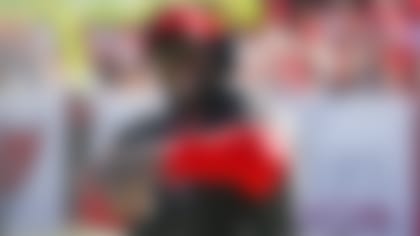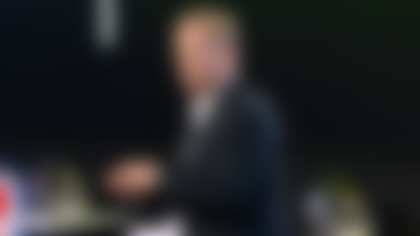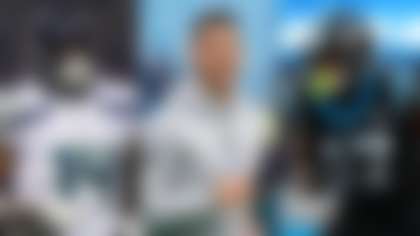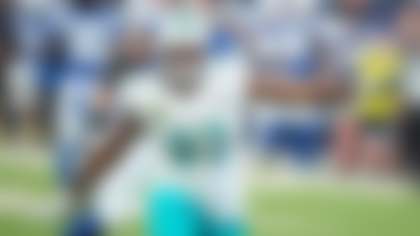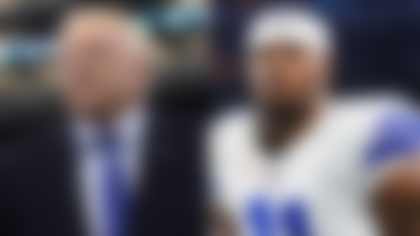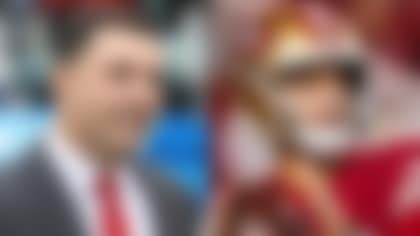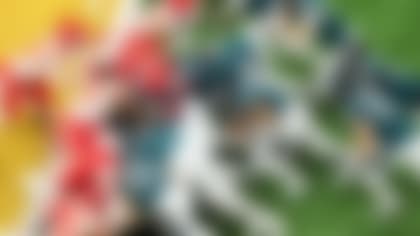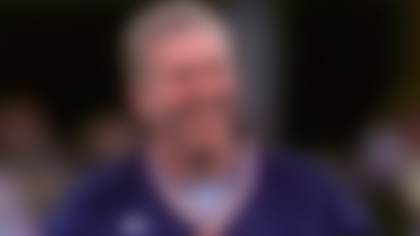Much has been made of Tom Brady's boundary-pushing dietary habits, but he isn't the only pro signal-caller rethinking his shopping list.
Seahawks quarterback Russell Wilson has used the offseason to transform his eating habits in hopes of upping his game come September.
"He was an animal about it," food coach and nutritionist Philip Goglia said of Wilson, per ESPN's Sheil Kapadia. "The f---ing guy buried himself in this, and it's epic to see, because that really validates him as a complete athlete."
Giving teammate Eddie Lacy a run for his money on the weight-loss front, Wilson has seen his weight drop from 225 pounds with 16 percent body fat to 214 pounds with 10 percent body fat on the new meal plan.
Goglia has worked with a laundry list of athletes and celebrities, notably helping actor Chris Pratt shift his lovably larger frame in Parks and Recreation to a trimmed-down machine for Guardians of the Galaxy. Pratt lost nearly 60 pounds in six months using Goglia's diet and exercise regimen.
After battling ankle and knee injuries last season, Wilson sought out Goglia in March, with the registered nutritionist telling Kapadia: "He came in feeling as though he was too heavy and not mobile enough. And he wanted to get his weight down. He was over 225. He felt as though he needed to be leaner and stronger and more agile. And that's my wheelhouse."
Goglia actually upped Wilson's calorie count from 2,700 calories to 4,800 per day to transform how the quarterback's body processed food.
"When you think metabolism, everybody will think fast or slow. And it's not. Metabolism is ultimately hot or cold," Goglia said. "Every fat guy will say, 'Food makes you fat. I eat one can of tuna and an apple a day.' And that's why they're fat. Not enough caloric heat. Especially in athletes. Athletic temperatures are huge metabolically. They have a big metabolic load. The more muscle you have, the more food you need. That's the baseline concept."
Wilson's current meal plan asks him to eat a whopping nine times a day while cutting out all aspects of dairy and gluten. Per Kapadia, here's a typical day of meals for Seattle's QB1:
» Pre-breakfast: Tablespoon of almond butter and a tablespoon of jam
» Breakfast: Two cups of cooked oatmeal, six whole eggs, fruit, chicken breast
» Snack: Fruit and 12 almonds
» Lunch: Eight ounces of protein with a yam or a cup of rice or a potato and a vegetable
» Second lunch: Eight ounces of protein with a yam or a cup of rice or a potato and a vegetable
» Snack: Fruit and 12 almonds
» Snack: Fruit, 12 almonds and whey protein
» Dinner: Fish or steak and vegetables or salad
» Snack: Fruit and a tablespoon of molasses or shredded wheat, applesauce, almond butter and jam
According to Goglia, Wilson's favorable results have just as much to do with what he's not eating.
"One of the important things with Russell and the elite athletes is that none of the foods he consumes are inflammatory foods, which means no yeast, no mold, no dairy, no gluten," Goglia said. "Dairy's like eating moderately hard phlegm. It adversely affects oxygen. No dairy, no breads -- muffins, bagels -- nothing that is yeast, mold and gluten-bound. So starches are always one-ingredient guys like potatoes or rice or yams or oatmeal. If it's got more than one ingredient in it, he couldn't eat it."
Said Wilson: "I love cheese -- hence Wisconsin [where we went to school]. I love cheese, so that's always something that you've got to be careful of."
While it's not a diet the average American would embrace, the average American isn't being asked to run Seattle's offense this autumn. Wilson admits the changes haven't been easy, but the results speak for themselves.


